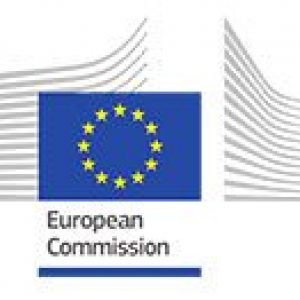Quantum News Briefs September 25: Infleqtion Secures $1.15M DOE SBIR Grant to Advance Quantum Software Platform • BTQ Technologies Completes Acquisition of Radical Semiconductor’s Processing-in-Memory Technology Portfolio • RIT Receives $9.6M Award To Improve Quantum System Networking Initiatives • QTIndu: Pioneering Quantum Technology Education for Europe’s Business Sectors • EU Commission Announces €65m Funding to Advance Quantum Chips

Infleqtion Secures $1.15M DOE SBIR Grant to Advance Quantum Software Platform

Infleqtion announced September 24 it has been awarded a $1.15M grant by the Department of Energy (DOE) under the SBIR Phase IIB program. This grant marks the first DOE SBIR Phase IIB award given to software for quantum computing and will help advance Infleqtion’s work on Superstaq, the company’s software platform purpose-built to optimize quantum computing performance.
Superstaq optimizes the performance of quantum computers, enabling faster and more reliable program execution. The platform uses proprietary cross-layer optimization techniques to enhance execution, error mitigation and hardware-specific operation. Infleqtion collaborates on the platform with leading quantum centers, including the Advanced Quantum Testbed (AQT) at Lawrence Berkeley National Laboratory and QSCOUT at Sandia National Laboratories.
The SBIR Phase IIB project will drive further advancement of Superstaq, with a focus on four technical objectives: efficient quantum characterization, optimized compilation for mid-circuit measurement, low-level compilation, and experimental demonstration of pristine resource state distillation. These are each aimed at further advancing the capabilities of quantum software to act as a force-multiplier towards commercially relevant applications. The potential public benefits are far ranging and include advancements in fields such as drug discovery, chemical simulations, aircraft design, logistics planning, and energy sector innovations.
BTQ Technologies Completes Acquisition of Radical Semiconductor’s Processing-in-Memory Technology Portfolio, Advancing Post-Quantum Cryptography Capabilities

BTQ Technologies Corp. (CBOE CA: BTQ) (FSE: NG3) (OTCQX: BTQQF), a global quantum technology company focused on securing mission-critical networks, announced September 24 the successful acquisition of Radical Semiconductor Inc.’s entire portfolio of technology assets. The acquisition includes all of Radical’s intellectual property and extensive patent portfolio, hardware design assets, and software associated with its cutting-edge CASH cryptographic accelerator architecture. This strengthens BTQ’s cryptographic capabilities, positioning the company as a global leader in post-quantum cryptography (PQC) and secure communications technologies.
Radical was founded by Stanford graduates Sean Hackett, Zach Belateche, and Katie Watson. Radical’s CASH architecture is one the industry’s most compact, efficient accelerators for post-quantum algorithms, such as Kyber and Dilithium, with a small enough footprint to bring these innovative cryptographic solutions to smart cards, IoT devices, mobile and other applications. The architecture’s processing-in-memory technology supports massive parallel computations while maintaining strong side-channel security at minimal cost. This solution comes at a time where the increased computational demands of PQC algorithms, compared with those of current public-key cryptography algorithms, make the PQC migration very complex and costly. Radical’s CASH architecture is uniquely positioned to address these challenges.
The integration of Radical’s cutting-edge technology will enhance BTQ’s quantum-secure communications infrastructure and provide substantial growth opportunities in emerging markets such as IoT, financial services, blockchain, and government sectors. Radical’s CASH architecture, which supports a wide range of cryptographic primitives, will strengthen BTQ’s offerings and expand its capabilities in delivering scalable and efficient quantum-secure solutions.
RIT Receives $9.6M Award To Improve Quantum System Networking Initiatives
 Rochester Institute of Technology has been awarded $9.6M from the Northeast Regional Defense Technology Hub (NORDTECH) to advance quantum chip technologies as per the Septemer 19 announcement. The focus will be on scaling the power of quantum systems by entangling them across a photonic network.
Rochester Institute of Technology has been awarded $9.6M from the Northeast Regional Defense Technology Hub (NORDTECH) to advance quantum chip technologies as per the Septemer 19 announcement. The focus will be on scaling the power of quantum systems by entangling them across a photonic network.
RIT is part of the Microelectronics Common/ Northeast Regional Defense Technology Hub (NORDTECH), one of several networks launched since the CHIPS and Science Act in 2022. Through the hub, the university will partner with several top labs in academia and government for the Heterogeneous Quantum Networking project, a four-year initiative with the Air Force Research Laboratory – Information Directorate, Yale University, Duke University, NY Creates and AIM Photonics.
Project partners will develop a heterogeneous quantum network that aims to link ion-based qubits and photonic-based qubits at high speed using photonic chips. This network enables different qubit types to work together, enhancing quantum entanglement applications like storage, sensing, and processing—technology necessary to improve processing power in critical information areas such as navigation, communication, and computation.
QTIndu: Pioneering Quantum Technology Education for Europe’s Business Sectors
 QTIndu, aimed at developing a pan-European short-term training programme in quantum technology, has surpassed the halfway point in its mission to prepare Europe’s businesses for the quantum revolution as per the September 24 release. Supported by the European Union’s Digital Europe Programme (Grant Agreement No. 101100757), QTIndu is empowering companies and SMEs across multiple industries to understand and implement quantum technologies in their operations.
QTIndu, aimed at developing a pan-European short-term training programme in quantum technology, has surpassed the halfway point in its mission to prepare Europe’s businesses for the quantum revolution as per the September 24 release. Supported by the European Union’s Digital Europe Programme (Grant Agreement No. 101100757), QTIndu is empowering companies and SMEs across multiple industries to understand and implement quantum technologies in their operations.
The QTIndu initiative focuses on creating high-impact, business-oriented quantum training courses that are tailored to meet the needs of various sectors, including aerospace, automotive, finance, energy, healthcare, and pharmaceuticals. The project’s key objectives are:
–Developing a pan-European short-term training programme in quantum technology, scalable across the continent.
–Offering tailored courses for industries and SMEs from different business sectors, ensuring they can effectively integrate quantum technologies.
–Providing guidelines for scaling QTIndu’s work to establish a comprehensive, pan-European education platform in quantum technology.
By focusing on sectors like ITC, HPC, consulting, and logistics, QTIndu aims to address the growing demand for quantum skills across industries critical to Europe’s technological future.
In Other News: Innovation News Reports ” EU Commission Announces €65m Funding to Advance Quantum Chips”
 The European Commission has revealed a major investment of €65m to drive innovation in quantum chips in the EU according to September 25 Innovation News Network.
The European Commission has revealed a major investment of €65m to drive innovation in quantum chips in the EU according to September 25 Innovation News Network.
Managed by the Chips Joint Undertaking (Chips JU), a European partnership established to reinforce the EU’s semiconductor sector, the funding aims to support the development of quantum chips for computing and sensors.
Chips JU has now opened calls to accelerate semiconductor research and innovation, with the funding representing the first call in quantum technologies.
The importance of quantum chips in driving innovation across an array of sectors cannot be understated, with the EU’s latest investment signalling Europe’s intent to become a leader in the field.



















